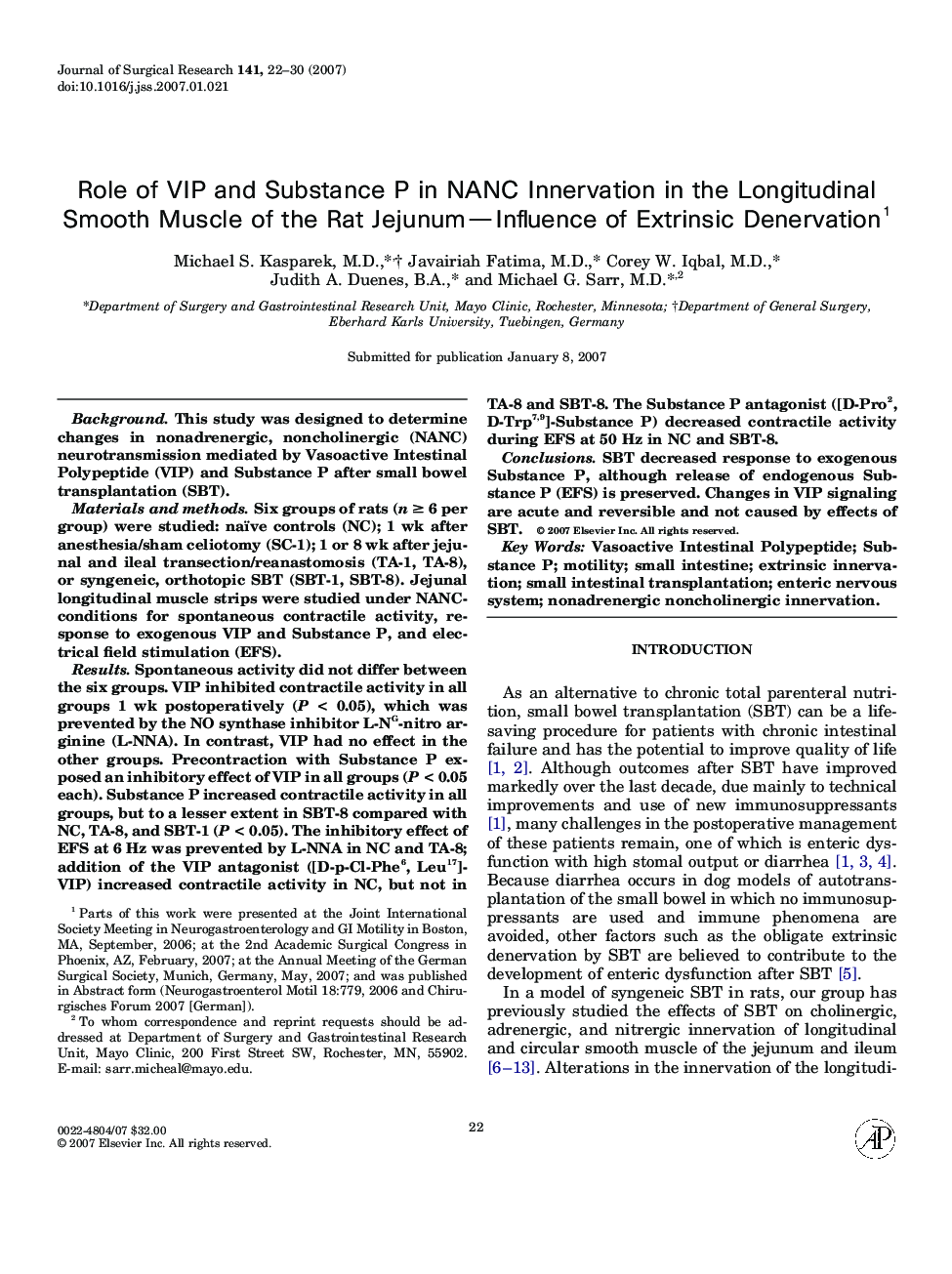| Article ID | Journal | Published Year | Pages | File Type |
|---|---|---|---|---|
| 4304837 | Journal of Surgical Research | 2007 | 9 Pages |
BackgroundThis study was designed to determine changes in nonadrenergic, noncholinergic (NANC) neurotransmission mediated by Vasoactive Intestinal Polypeptide (VIP) and Substance P after small bowel transplantation (SBT).Materials and methodsSix groups of rats (n ≥ 6 per group) were studied: naïve controls (NC); 1 wk after anesthesia/sham celiotomy (SC-1); 1 or 8 wk after jejunal and ileal transection/reanastomosis (TA-1, TA-8), or syngeneic, orthotopic SBT (SBT-1, SBT-8). Jejunal longitudinal muscle strips were studied under NANC-conditions for spontaneous contractile activity, response to exogenous VIP and Substance P, and electrical field stimulation (EFS).ResultsSpontaneous activity did not differ between the six groups. VIP inhibited contractile activity in all groups 1 wk postoperatively (P < 0.05), which was prevented by the NO synthase inhibitor L-NG-nitro arginine (L-NNA). In contrast, VIP had no effect in the other groups. Precontraction with Substance P exposed an inhibitory effect of VIP in all groups (P < 0.05 each). Substance P increased contractile activity in all groups, but to a lesser extent in SBT-8 compared with NC, TA-8, and SBT-1 (P < 0.05). The inhibitory effect of EFS at 6 Hz was prevented by L-NNA in NC and TA-8; addition of the VIP antagonist ([D-p-Cl-Phe6, Leu17]-VIP) increased contractile activity in NC, but not in TA-8 and SBT-8. The Substance P antagonist ([D-Pro2, D-Trp7,9]-Substance P) decreased contractile activity during EFS at 50 Hz in NC and SBT-8.ConclusionsSBT decreased response to exogenous Substance P, although release of endogenous Substance P (EFS) is preserved. Changes in VIP signaling are acute and reversible and not caused by effects of SBT.
